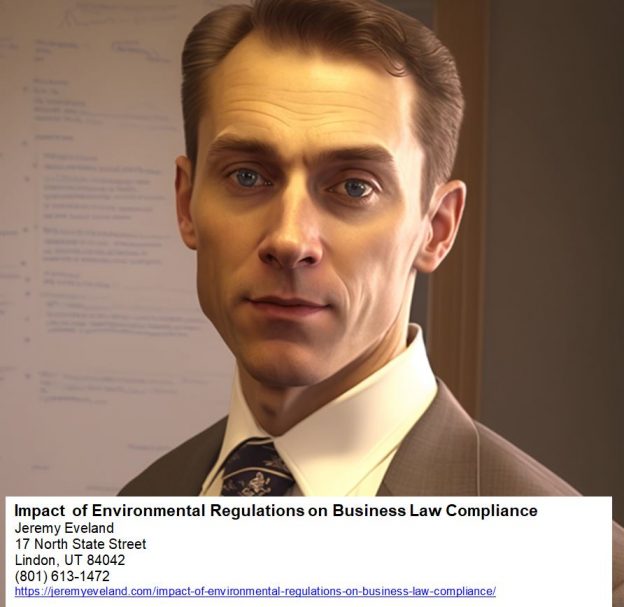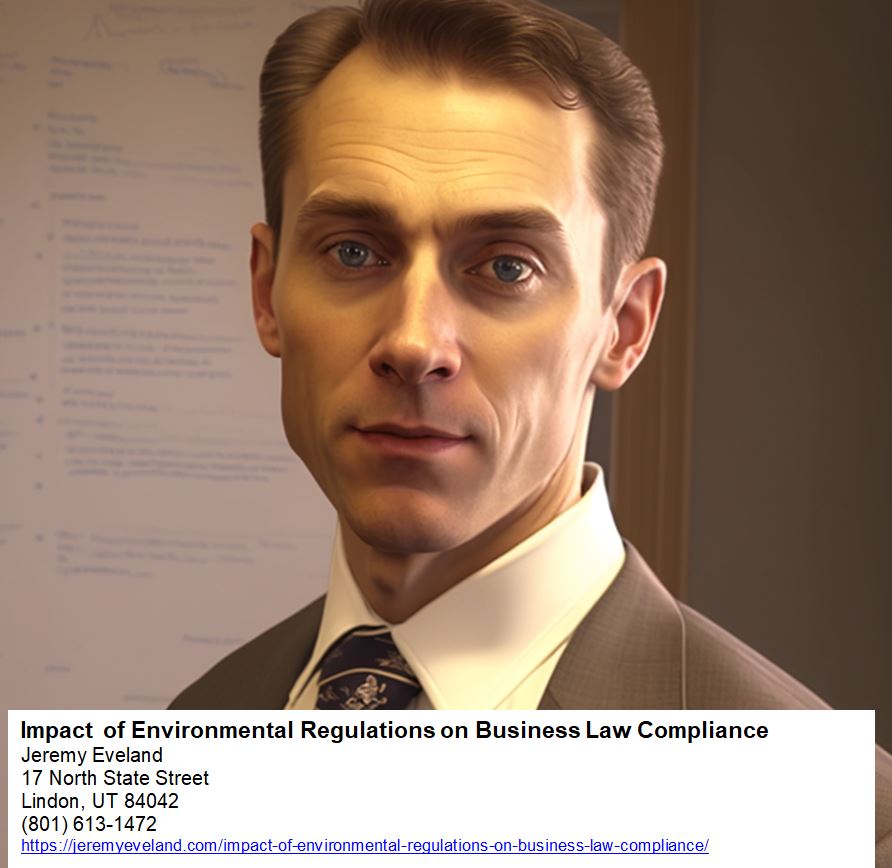In the fast-paced world of advertising, maintaining transparency is essential for businesses seeking to build trust and credibility with their audiences. Without proper advertising transparency standards, companies risk facing significant legal and ethical consequences. To ensure compliance and avoid potential pitfalls, it is crucial for businesses to have a thorough understanding of these standards. In this article, we will explore the concept of advertising transparency, discussing its importance and how it can help businesses establish a strong foundation of trust with their customers. Additionally, we will address frequently asked questions about advertising transparency and provide concise answers to assist businesses in navigating this complex area of law. By following these guidelines, businesses can confidently communicate their message to their target audience while maintaining complete transparency in their advertising practices.

Overview of Advertising Transparency Standards
Definition of advertising transparency
Advertising transparency refers to the practice of openly disclosing information about advertisements to consumers. It involves providing clear and accurate information regarding the nature of an advertisement, including whether it is sponsored or affiliated with a particular brand. Transparency in advertising ensures that consumers have access to truthful and relevant information, allowing them to make informed decisions.
Importance of advertising transparency
Advertising transparency is vital for several reasons. Firstly, it promotes trust between businesses and consumers. When advertisements are transparent, consumers perceive the brands as more credible and trustworthy, leading to stronger brand-consumer relationships. Secondly, transparency protects consumers from misleading advertisements by ensuring that they have all the necessary information to evaluate a product or service. It allows consumers to make choices based on accurate and reliable information, reducing the risk of deception. Finally, advertising transparency promotes fair competition in the marketplace by creating a level playing field where all businesses adhere to the same standards of disclosure.
Role of advertising transparency standards
Advertising transparency standards play a crucial role in regulating and maintaining transparency in advertising. These standards provide guidelines and requirements that businesses must follow to ensure their advertisements are transparent. By establishing industry-wide expectations, advertising transparency standards promote consistent disclosure practices and protect consumers from deceptive advertising practices. These standards help businesses and advertisers understand their obligations and provide a framework for compliance and enforcement.
Key stakeholders in advertising transparency standards
Several key stakeholders are involved in the development and implementation of advertising transparency standards. Regulatory agencies, such as the Federal Trade Commission (FTC) in the United States, are responsible for overseeing and enforcing advertising transparency laws. Industry organizations, such as the American Association of Advertising Agencies (4As) or the Interactive Advertising Bureau (IAB), play a significant role in setting advertising codes of conduct and educating businesses on best practices. Advertisers, advertising agencies, and digital platforms also have a responsibility to ensure compliance with advertising transparency standards and promote transparency in their advertising practices.
Legal Framework for Advertising Transparency Standards
Laws governing advertising transparency
Advertising transparency is regulated by various laws at both the federal and state levels. In the United States, the Federal Trade Commission Act (FTCA) empowers the FTC to prohibit unfair or deceptive acts or practices in commerce, including advertising. The FTCA requires advertisements to be truthful and non-deceptive, and it prohibits false and misleading advertising. Additionally, specific laws, such as the Lanham Act, govern false advertising by providing remedies for competitors who are harmed by deceptive advertising practices.
State laws also play a role in regulating advertising transparency. Many states have consumer protection statutes that prohibit deceptive advertising practices and require disclosures in certain contexts. These state laws often complement and reinforce federal guidelines.
Regulatory agencies overseeing advertising transparency
Regulatory agencies, such as the Federal Trade Commission (FTC) in the United States, play a crucial role in overseeing and enforcing advertising transparency standards. The FTC monitors advertising practices to ensure compliance with laws and guidelines, investigates complaints and reports of deceptive advertising, and takes enforcement actions against businesses that violate advertising transparency standards. The FTC provides guidance and educational resources to help businesses understand their responsibilities and comply with advertising transparency requirements.
Enforcement of advertising transparency standards
Enforcement of advertising transparency standards is a vital aspect of maintaining transparency in advertising. Regulatory agencies, such as the FTC, have the authority to enforce compliance with advertising transparency standards. They can initiate investigations, issue warning letters, and bring legal actions against businesses that engage in deceptive advertising practices. In some cases, businesses may also face civil lawsuits for false advertising, with potential consequences including monetary damages, injunctions, and reputational harm.
To ensure compliance, businesses should establish internal monitoring and review mechanisms, educate employees about advertising transparency standards, and work with legal counsel to develop advertising strategies that align with the legal requirements.
Elements of Advertising Transparency Standards
Detailed disclosure requirements
Advertising transparency standards often include specific disclosure requirements that businesses must follow. These requirements may vary depending on the nature of the advertisement and the jurisdiction in which it is being published. Examples of common disclosure requirements include:
- Clearly stating whether an advertisement is sponsored or paid content
- Disclosing any relationships between the advertiser and endorsers, such as affiliations or incentives
- Providing clear and accurate information about product claims, including supporting evidence or qualifications
- Disclosing any material connections between an advertiser and the subject of the advertisement
By providing detailed disclosure requirements, advertising transparency standards ensure that consumers have access to relevant and accurate information when evaluating advertisements.
Clear identification of sponsored content
A critical aspect of advertising transparency is the clear identification of sponsored content. When an advertisement is sponsored, it is essential to disclose this information to consumers upfront. This disclosure allows consumers to understand that the content they are viewing or reading is influenced by an advertiser’s commercial interests. Clear identification of sponsored content is necessary to avoid misleading consumers and maintain transparency in advertising.
Honest use of testimonials and endorsements
Advertising transparency standards require the honest use of testimonials and endorsements. Testimonials or endorsements should accurately reflect the experiences and opinions of the individuals providing them. If there are any material connections between the endorser and the advertiser, such as a financial relationship or employment, these connections must be disclosed to consumers. This ensures that advertisements do not deceive consumers by presenting biased or false representations of a product or service.
Accurate and reliable product claims
Advertising transparency standards emphasize the importance of accurate and reliable product claims. Advertisements should not make false or misleading statements about a product’s features, benefits, or performance. Any scientific or factual claims should be supported by evidence or scientific research. By requiring accurate and reliable product claims, advertising transparency standards protect consumers from deceptive advertising practices.
Disclosure of affiliate relationships
Many advertisements involve affiliate relationships, where an advertiser compensates a third party for referring customers or generating sales. Advertising transparency standards commonly require the disclosure of these affiliate relationships. Consumers should be made aware when an affiliate relationship is present so that they can evaluate the potential biases or the financial incentives behind the recommendation.
Benefits of Advertising Transparency Standards
Building trust with consumers
One of the primary benefits of advertising transparency standards is the ability to build trust with consumers. When advertisements are transparent and provide accurate information, consumers perceive the brands as more credible and trustworthy. Transparent advertising practices foster stronger relationships between businesses and consumers, leading to increased customer loyalty and brand advocacy.
Protecting consumers from misleading advertisements
Transparency in advertising protects consumers from misleading or deceptive advertisements. By requiring clear disclosures and accurate information, advertising transparency standards enable consumers to make informed decisions. When consumers have access to truthful and relevant information, they are less likely to be deceived or misled by advertisers.
Promoting fair competition in the marketplace
Advertising transparency standards promote fair competition in the marketplace by creating a level playing field for businesses. When all businesses adhere to the same standards of transparency, consumers can make informed choices based on accurate information, rather than falling prey to deceptive advertising practices. Fair competition ensures that businesses can compete on equal terms, fostering innovation and better consumer outcomes.
Enhancing brand reputation
Adhering to advertising transparency standards can enhance a brand’s reputation. When businesses are transparent in their advertising practices, consumers perceive them as more trustworthy and reliable. Transparent advertising cultivates a positive brand image and helps businesses differentiate themselves from competitors. By consistently demonstrating transparency, businesses can build a reputable brand that attracts customers and fosters long-term success.
Reducing legal risks and liabilities
Complying with advertising transparency standards helps businesses mitigate legal risks and liabilities. By ensuring that advertisements are transparent and in line with legal requirements, businesses reduce the likelihood of facing legal consequences, such as regulatory investigations or lawsuits. Adhering to advertising transparency standards demonstrates a commitment to ethical and compliant business practices, minimizing the potential for legal disputes and reputational damage.

Challenges and Compliance Issues
Implementing transparency standards across different advertising channels
One of the challenges of advertising transparency is implementing consistent standards across different advertising channels. With the increasing use of digital advertising platforms, advertisers must adapt their transparency practices to various mediums, such as social media, websites, and mobile applications. Different platforms may have unique requirements and limitations, making it challenging to ensure consistent disclosure practices. Businesses must stay updated on evolving advertising practices and proactively address the transparency challenges associated with each advertising channel.
Ensuring compliance with evolving digital advertising practices
Digital advertising practices continuously evolve, presenting compliance challenges for businesses. New technologies, such as targeted advertising, programmatic advertising, and native advertising, require businesses to adapt their transparency practices to these emerging trends. Ensuring compliance with evolving digital advertising practices often involves staying informed of industry guidelines, consulting with legal professionals, and leveraging technology solutions that facilitate transparency and disclosure.
Balancing disclosure requirements with consumer attention span
Disclosure requirements in advertising transparency standards should be balanced with the limited attention span of consumers. While it is crucial to provide relevant and accurate information, excessive disclosures can overwhelm consumers and lead to information overload. Finding a balance between concise and comprehensive disclosures is essential to ensure that consumers receive the necessary information without discouraging engagement with the advertisement. Clear and concise language, strategically placed disclosures, and user-friendly interfaces can help mitigate this challenge.
Addressing misleading practices in native advertising
Native advertising, which matches the form and function of the platform it appears on, presents specific challenges regarding advertising transparency. Native advertisements can blur the lines between editorial content and sponsored content, potentially misleading consumers. Advertising transparency standards aim to address these concerns by requiring clear and conspicuous disclosures that differentiate native advertisements from independent editorial content. Advertisers must carefully design native advertisements to maintain transparency and prevent consumer confusion.
Monitoring and enforcement challenges
Monitoring and enforcing compliance with advertising transparency standards can be a complex task. With a vast number of advertisements being published daily, regulatory agencies face challenges in identifying and investigating non-compliant advertisements effectively. Additionally, enforcement actions often require substantial resources and involve legal complexities. To address these challenges, regulatory agencies may rely on consumer complaints, industry self-regulation, and collaborations between stakeholders to help monitor and enforce advertising transparency standards effectively.
Industry Self-Regulation and Best Practices
Role of advertising industry organizations
Advertising industry organizations play a crucial role in promoting advertising transparency through self-regulation. These organizations, such as the American Association of Advertising Agencies (4As) or the Interactive Advertising Bureau (IAB), develop and enforce advertising codes of conduct. These codes establish ethical standards and guidelines for advertising practices, including transparency requirements. By participating in industry organizations and adhering to their codes, businesses can demonstrate their commitment to responsible advertising and gain credibility in the industry.
Development of advertising codes of conduct
Advertising codes of conduct provide specific guidelines and best practices for businesses to follow regarding advertising transparency. These codes are often developed and updated by industry organizations, in consultation with regulators and other stakeholders. Advertising codes of conduct cover various aspects of advertising transparency, including disclosure requirements, clear identification of sponsored content, proper use of endorsements, and accurate product claims. By implementing these industry-accepted standards, businesses can align their advertising practices with prevailing expectations and demonstrate their commitment to transparent advertising.
Educational initiatives and resources
Industry organizations and regulatory agencies often provide educational initiatives and resources to help businesses understand and comply with advertising transparency standards. These initiatives can take the form of training programs, webinars, educational materials, and online resources. By increasing awareness and knowledge about advertising transparency, these initiatives support businesses in implementing best practices, mitigating compliance risks, and fostering a culture of transparency.
Collaboration between industry stakeholders
Collaboration between industry stakeholders is essential for promoting advertising transparency. Advertisers, advertising agencies, regulatory agencies, and consumer advocacy groups must work together to establish and enforce effective advertising transparency standards. Collaborative efforts can include sharing best practices, participating in industry initiatives, developing industry-wide guidelines, and engaging in constructive dialogue to address emerging challenges. By working collectively, industry stakeholders can ensure that advertising transparency remains a priority and is consistently upheld across the industry.
The Impact of Digital Advertising
Emergence of digital advertising platforms
Digital advertising has transformed the advertising landscape, offering new opportunities and challenges for advertising transparency. With the rise of digital platforms, such as social media, search engines, and mobile applications, advertisers can reach a vast audience with targeted and personalized advertising. However, digital advertising platforms also present unique challenges regarding transparency, such as the integration of advertisements within content, data collection practices, and ad targeting techniques. Advertisers must navigate these challenges while maintaining transparency in their digital advertising efforts.
Unique challenges and opportunities for transparency
Digital advertising presents both challenges and opportunities for advertising transparency. On one hand, the seamless integration of advertisements within online content can make it difficult to differentiate between sponsored and independent content. On the other hand, digital platforms provide new opportunities for transparency, such as interactive disclosures, real-time feedback from consumers, and tracking and reporting mechanisms. Advertisers must leverage these opportunities to enhance transparency while addressing the challenges posed by digital advertising.
Addressing issues with targeted advertising
Targeted advertising, enabled by data collection and analysis, allows advertisers to deliver personalized advertisements to specific audiences. While it offers benefits such as increased relevance and efficiency, targeted advertising raises transparency concerns. Consumers may be unaware of the data collection practices behind targeted advertising or the factors influencing the advertisements they receive. To address these concerns, advertising transparency standards emphasize the disclosure of data collection practices, ad targeting algorithms, and the ability to opt-out of targeted advertising.
Ethical considerations in data collection and usage
Data collection and usage in digital advertising raise ethical considerations related to privacy and consent. Advertisers must ensure that they collect and use consumer data in a transparent and ethical manner. Transparency is critical in informing consumers about the types of data collected, how it will be used, and the security measures in place to protect their data. Advertisers should seek explicit consent from consumers for data collection and provide easily accessible privacy policies that outline their data practices.
Transparency in Influencer Marketing
Disclosure requirements for influencer endorsements
Influencer marketing has gained popularity as an effective advertising strategy. However, it also raises unique transparency challenges, as consumers may not always be aware when influencers are promoting products or services in exchange for compensation. Advertising transparency standards require influencers to clearly disclose their relationships with advertisers when endorsing products or services. Influencers must provide transparent and conspicuous disclosures, such as using specific hashtags or clear verbal statements, to ensure that consumers are aware of the commercial nature of the endorsement.
Identification of sponsored content by influencers
When influencers are engaged in sponsored content, it is crucial for them to clearly identify and differentiate it from their independent content. Influencers should use visual cues, such as logos or captions, to indicate that the content is sponsored. These visual cues should be easily noticeable and distinguishable from the regular content. Transparent identification of sponsored content allows consumers to distinguish between genuine recommendations and advertisements, enhancing transparency and trust in influencer marketing.
Monitoring and enforcement in influencer marketing
Monitoring and enforcing advertising transparency in influencer marketing can be challenging due to the large number of influencers and the diversity of platforms they use. Regulatory agencies rely on a combination of consumer complaints and sophisticated monitoring tools to identify non-compliant influencers. Businesses and advertisers should also engage in ongoing monitoring of influencer partnerships and ensure that influencers they work with adhere to advertising transparency requirements. By actively enforcing compliance, businesses and regulatory agencies can maintain transparency and credibility in influencer marketing.
Benefits and concerns of influencer marketing transparency
Transparent influencer marketing can provide several benefits for both businesses and consumers. By clearly identifying sponsored content, businesses can build trust with consumers, who appreciate the transparency and authenticity of influencer recommendations. Transparent influencer marketing allows consumers to make informed decisions based on accurate information, reducing the risk of being misled or deceived. However, concerns regarding transparency in influencer marketing persist, such as the potential for undisclosed sponsorships or the use of misleading endorsements. Adhering to advertising transparency standards helps address these concerns and ensures that influencer marketing remains a reliable and ethical advertising strategy.

International Perspectives on Advertising Transparency Standards
Variances in advertising regulations globally
Advertising regulations vary significantly across countries and regions around the world. While many jurisdictions have similar objectives of promoting transparency and protecting consumers, the specific requirements and enforcement mechanisms can differ. Some countries have comprehensive advertising laws, while others rely on self-regulation by industry organizations. Advertisers must be aware of the advertising regulations in each jurisdiction where they operate to ensure compliance with local transparency standards.
Harmonization efforts and international standards
Efforts to harmonize advertising transparency standards internationally exist to create consistent guidelines and best practices across borders. Organizations like the International Chamber of Commerce (ICC) and regional advertising self-regulatory bodies work towards standardizing ethical advertising practices globally. International standards such as the ICC Advertising and Marketing Communications Code provide guidelines for responsible advertising, including transparency requirements. Advertisers operating in multiple jurisdictions can use these international standards as a benchmark to implement transparent advertising practices.
Cross-border advertising compliance challenges
Cross-border advertising presents unique compliance challenges due to varying advertising regulations across jurisdictions. Advertisers must carefully consider the specific transparency requirements and language sensitivities in each jurisdiction where their advertisements will be viewed. Different cultures and legal frameworks may affect the interpretation of transparency standards, making it essential for businesses to seek legal advice to ensure compliance when launching cross-border advertising campaigns.
FAQs about Advertising Transparency Standards
What is the purpose of advertising transparency?
The purpose of advertising transparency is to provide consumers with accurate and relevant information about advertisements. Transparency ensures that consumers can make informed decisions by being aware of the true nature and commercial intent of an advertisement.
Who is responsible for enforcing advertising transparency standards?
Regulatory agencies, such as the Federal Trade Commission (FTC) in the United States, are primarily responsible for enforcing advertising transparency standards. These agencies monitor compliance, investigate complaints, and take enforcement actions against businesses that violate advertising transparency requirements.
What are the potential legal consequences of non-compliance?
Non-compliance with advertising transparency standards can result in various legal consequences. Businesses may face regulatory investigations, receive warning letters, or be subject to legal actions and fines. Additionally, non-compliant businesses may also face civil lawsuits from competitors or consumers, which could lead to monetary damages, injunctive relief, and reputational harm.
Are there specific disclosure requirements for online advertisements?
Yes, online advertisements are subject to specific disclosure requirements. Online advertisements must clearly disclose whether they are sponsored or paid content, disclose any relationships between the advertiser and endorsers, provide accurate and reliable product claims, and disclose any material connections between the advertiser and the subject of the advertisement. These requirements aim to ensure transparency in online advertising.
How can companies ensure compliance with advertising transparency standards?
Companies can ensure compliance with advertising transparency standards by:
- Familiarizing themselves with the relevant laws and regulations governing advertising transparency.
- Establishing internal monitoring and review mechanisms to ensure ongoing compliance.
- Educating employees about advertising transparency requirements and best practices.
- Working with legal professionals to develop advertising strategies that align with legal requirements.
- Staying informed about evolving industry guidelines and best practices.
- Building a culture of transparency and ethical advertising throughout the organization.






















